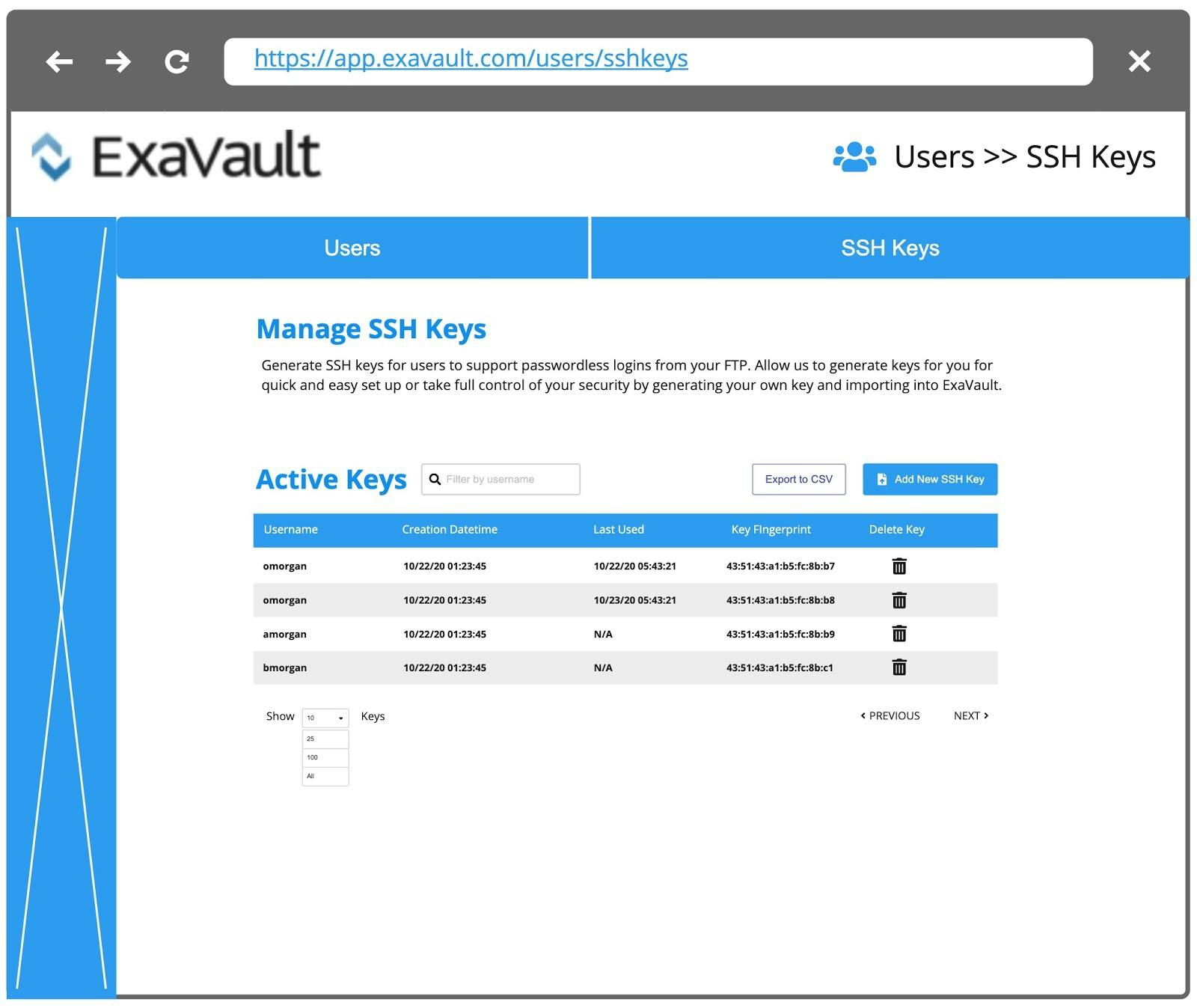Hey there, tech enthusiasts and IoT wizards! If you're diving into the world of RemoteIoT, you've probably stumbled upon the concept of SSH key management. But what exactly does it entail? Why is it so crucial in securing your remote IoT systems? Well, buckle up because we’re about to break it down for you in a way that’s both informative and easy to digest.
RemoteIoT SSH key management might sound like a mouthful, but trust me, it’s simpler than you think. In today’s interconnected world, where devices are talking to each other more than ever, ensuring secure communication is non-negotiable. That’s where SSH key management comes in – it’s like the bouncer at a club, making sure only the right people (or devices) get in.
Before we dive deep into the nitty-gritty, let’s set the stage. This guide is crafted for anyone who wants to understand the importance of SSH keys in remote IoT environments. Whether you're a seasoned developer or just starting out, this article will equip you with everything you need to know. So, are you ready to unlock the secrets of RemoteIoT SSH key management?
- Jerome Jesse Berry Halle Berrys Father His Life Amp Struggles
- No Results Error Check Your Search Tips Tricks
Now, let’s jump into the details, shall we?
What is RemoteIoT SSH Key Management?
Alright, let’s start with the basics. RemoteIoT SSH key management refers to the practice of securely handling SSH keys in IoT environments. Think of SSH keys as digital keys that grant access to your IoT devices. They’re used to authenticate users or devices, ensuring that only authorized parties can access sensitive data or control systems.
Here’s the deal: IoT devices are everywhere – from smart homes to industrial automation. Each of these devices needs to communicate securely, and that’s where SSH keys come into play. By managing these keys effectively, you can prevent unauthorized access, reduce security risks, and maintain the integrity of your IoT network.
- Orca 1977 The Revenge Thriller You Need To See Today
- Ray Mcelrathbey The Inspiring True Story Behind Safety
But why is it so important? Well, imagine leaving your front door unlocked in a neighborhood full of hackers. Not a great idea, right? That’s what happens when you neglect proper SSH key management. It’s like rolling out the red carpet for cybercriminals.
Why Should You Care About SSH Key Management?
Let’s face it – cybersecurity is no joke, especially in the realm of IoT. Here’s why SSH key management should be on your radar:
- Enhanced Security: Proper SSH key management ensures that only trusted devices and users can access your network, reducing the risk of breaches.
- Compliance Requirements: Many industries have strict regulations when it comes to data protection. Managing SSH keys effectively helps you stay compliant.
- Scalability: As your IoT network grows, managing SSH keys becomes even more critical. A well-structured system allows you to scale without compromising security.
- Cost Efficiency: A breach can cost you a fortune in terms of financial losses and reputational damage. Investing in SSH key management is a cost-effective way to protect your assets.
So, whether you’re managing a handful of devices or an entire fleet, SSH key management is your secret weapon for maintaining a secure and efficient IoT ecosystem.
How Does SSH Key Management Work in IoT?
Now that we’ve established why SSH key management matters, let’s talk about how it works. At its core, SSH key management involves generating, distributing, and revoking SSH keys. Here’s a quick rundown:
Key Generation
Generating SSH keys is the first step. These keys come in pairs – a public key and a private key. The public key is shared with devices or servers you want to connect to, while the private key remains secret and is stored securely on your device.
Key Distribution
Once you’ve generated the keys, it’s time to distribute them. This involves securely transferring the public key to the devices or servers you want to communicate with. Proper distribution ensures that only authorized devices have access to the public key.
Key Revocation
What happens if a device is compromised or no longer needed? That’s where key revocation comes in. By revoking SSH keys, you can ensure that unauthorized devices can no longer access your network.
And that’s the gist of it. Simple, right? But don’t be fooled – effective SSH key management requires careful planning and execution.
Best Practices for RemoteIoT SSH Key Management
Now that you know the basics, let’s talk about best practices. Here are some tips to help you master RemoteIoT SSH key management:
- Use Strong Keys: Longer keys (e.g., 2048-bit or higher) are harder to crack, so always opt for strong encryption.
- Limit Key Lifespan: Don’t let SSH keys linger forever. Set expiration dates to ensure that outdated keys are automatically revoked.
- Centralized Management: Use a centralized system to manage all your SSH keys. This makes it easier to monitor, update, and revoke keys as needed.
- Regular Audits: Conduct regular audits to identify and address any security vulnerabilities in your SSH key management process.
By following these best practices, you can significantly enhance the security of your IoT network. Remember, the goal is to stay one step ahead of potential threats.
Common Challenges in SSH Key Management
As with any technology, SSH key management comes with its own set of challenges. Here are some common hurdles you might face:
- Key Sprawl: As your IoT network grows, managing a large number of keys can become overwhelming. Without proper tools, it’s easy to lose track of which keys are active and which ones need to be revoked.
- Manual Processes: Relying on manual methods for key management can lead to errors and inefficiencies. Automating these processes can help mitigate these issues.
- Outdated Keys: Failing to update or revoke outdated keys can leave your network vulnerable to attacks. Regular maintenance is key to avoiding this pitfall.
Addressing these challenges requires a proactive approach. By implementing robust tools and processes, you can overcome these obstacles and maintain a secure IoT environment.
Tools for Effective SSH Key Management
Thankfully, there are plenty of tools available to help you manage SSH keys effectively. Here are a few worth considering:
OpenSSH
OpenSSH is a widely used open-source tool for managing SSH keys. It’s reliable, secure, and offers a range of features for key generation, distribution, and revocation.
SSH Key Manager
SSH Key Manager is a cloud-based solution designed specifically for managing SSH keys in IoT environments. It offers centralized control, automation, and real-time monitoring, making it an excellent choice for large-scale deployments.
HashiCorp Vault
HashiCorp Vault is a powerful tool for managing secrets, including SSH keys. It provides secure storage, dynamic key generation, and fine-grained access control, ensuring your keys are always protected.
These tools can simplify the SSH key management process, allowing you to focus on what really matters – building and maintaining a secure IoT network.
Real-World Applications of SSH Key Management
Let’s take a look at some real-world applications of SSH key management in IoT:
Smart Homes
In smart home environments, SSH key management ensures that only authorized devices can access your home network. This prevents unauthorized access to sensitive data, such as security camera feeds or smart lock controls.
Industrial Automation
For industrial IoT, SSH key management is critical for securing communication between machines. By ensuring that only trusted devices can communicate, you can prevent costly downtime and potential safety hazards.
Healthcare
In the healthcare industry, SSH key management protects sensitive patient data. By securing communication between medical devices and servers, you can ensure compliance with regulations like HIPAA.
These examples demonstrate the versatility and importance of SSH key management across various industries.
Data and Statistics on IoT Security
Let’s talk numbers. According to recent studies:
- By 2025, the number of IoT devices is projected to reach 75 billion globally.
- Over 70% of IoT devices have known security vulnerabilities.
- Cyberattacks targeting IoT devices increased by 300% in 2020 alone.
These statistics highlight the growing need for robust security measures, such as SSH key management, to protect IoT networks from potential threats.
Future Trends in SSH Key Management
Looking ahead, here are some trends to watch out for in SSH key management:
- AI and Machine Learning: These technologies are being used to enhance SSH key management by automating processes and detecting anomalies in real time.
- Quantum-Resistant Encryption: As quantum computing becomes a reality, new encryption methods will be needed to ensure the security of SSH keys.
- Zero-Trust Architecture: This approach assumes that no device or user can be trusted by default, requiring strict authentication and authorization for every connection.
Staying ahead of these trends will help you future-proof your IoT network and ensure long-term security.
Conclusion: Take Control of Your IoT Security
And there you have it – everything you need to know about RemoteIoT SSH key management. From understanding the basics to implementing best practices, this guide has equipped you with the tools and knowledge to secure your IoT network.
Remember, cybersecurity is an ongoing battle. By staying informed and proactive, you can protect your devices and data from potential threats. So, what are you waiting for? Start implementing these strategies today and take control of your IoT security!
Feel free to share your thoughts in the comments below or explore more articles on our site. Together, let’s build a safer and more connected world!
Table of Contents
- What is RemoteIoT SSH Key Management?
- Why Should You Care About SSH Key Management?
- How Does SSH Key Management Work in IoT?
- Best Practices for RemoteIoT SSH Key Management
- Common Challenges in SSH Key Management
- Tools for Effective SSH Key Management
- Real-World Applications of SSH Key Management
- Data and Statistics on IoT Security
- Future Trends in SSH Key Management
- Conclusion: Take Control of Your IoT Security



Detail Author:
- Name : Dr. Wanda Metz
- Username : ashton80
- Email : miller.bergnaum@schmeler.com
- Birthdate : 1992-06-01
- Address : 948 Anya Point Chaimburgh, TN 69625-9889
- Phone : +1 (580) 790-7807
- Company : Mills Inc
- Job : Agricultural Crop Worker
- Bio : Rerum optio aut praesentium omnis praesentium nisi. Sit qui voluptatem aut est incidunt aut incidunt ad. Aliquid dolores facilis aut quia magni labore commodi aperiam.
Socials
instagram:
- url : https://instagram.com/oberbrunnerl
- username : oberbrunnerl
- bio : Aut aut consequatur aut sapiente ducimus veniam. Necessitatibus repudiandae reiciendis facilis.
- followers : 2610
- following : 2007
twitter:
- url : https://twitter.com/oberbrunner1998
- username : oberbrunner1998
- bio : Nisi voluptas ex ratione assumenda. Et quibusdam excepturi neque qui pariatur. Dolores commodi at et qui enim dolorum. Perferendis harum autem id.
- followers : 5754
- following : 1025
tiktok:
- url : https://tiktok.com/@oberbrunnerl
- username : oberbrunnerl
- bio : Repudiandae id ut odit et sint aperiam consequuntur.
- followers : 3903
- following : 2077